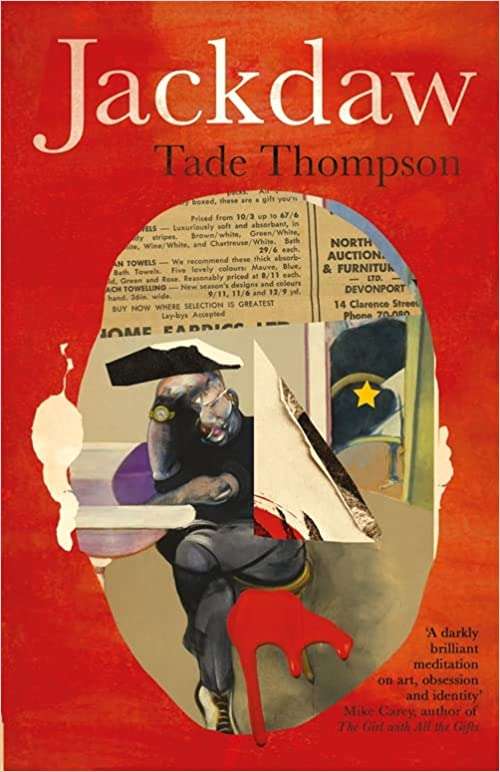Jackdaw by Tade Thompson
CHEERIO Publishing, paperback, £10.99
Reviewed by Joely Black

Jackdaw is one of the most unusual novels I’ve read. It is not a conventional fantasy story but an exploration of creativity, sanity, and perhaps even the nature of art and truth itself. Tade Thompson tells the tale of a fictionalised version of himself tasked with writing a novella inspired by the life and work of the artist Francis Bacon. Which parts are authentic—and which imaginary—is left to anybody wishing to do some intense Googling. As the tale and Thompson’s life unravel, it becomes clear to the reader that reality itself is perhaps on shaky ground.
This is not so much a novel about Francis Bacon himself but the creative process itself. It is about what it takes to find inspiration, understand other people, and understand ourselves. It all starts reasonably enough. Tade Thompson, author and psychiatrist is commissioned to write a piece inspired by Francis Bacon and his work. The Tade we meet in this novel is very much like the Tade writing it, a trick that allows him to play with the thinness of the boundary between art and artist, subject and object.
At first, he struggles to get going. After doing a great deal of practical research, Tade diagnoses his problem as an inability to connect emotionally with the object of this novel. Books are not enough; reading about the artist’s life and work gives him no sense of Bacon’s inner world. This leads him on a journey encompassing the creative process, medicine, the body as subject and object, Yoruba religious practice, and trauma.
This novel is a profoundly compelling read and a masterclass in writing the unreliable narrator. Thompson peels back the layers of himself in a multilayered expression of the difficulty of creating art and the highly personal nature of inspiration and creation. Thompson is the ideal choice for this work. He’s not only incredibly talented but, on a practical level, has a practical understanding of the kind of medical matter that inspired Bacon’s own work.
Fictional Thompson’s problems start when he struggles to find the creative flow he’s been used to with his previous projects. Attempts to research Bacon’s life via the medium of books fail. He visits his friend, a Yoruba cleverman, who can speak to the spirits of the dead. The only ghosts either of them can reach are those of the women closely associated with Bacon during his life—his nanny Jessie Lightfoot and muse, Henrietta Moraes. These figures appear to him as polar opposites, one silent and chastising and the other vibrantly sexual. Thompson finds himself caught in a compulsive trap that starts him down a creative rabbit hole.
At first, the reader trusts Thompson’s factual telling. Whatever explanation might lie behind the appearance of Moraes and Lightfoot, we flip back and forth, checking that the novels he mentions were indeed the ones he wrote. We check that his agent is the one named. This activity only assuages doubt briefly as Thompson’s tale becomes increasingly alarming. In search of the veracity of experience, Thompson does all the usual things an author might do, including visiting a museum dedicated to Bacon’s studio and places he haunted. Gradually, though, it’s clear that the Thompson of fact and the Thompson of fiction have diverged. What we can’t do is pin down where.
The result is a short and compulsive read (no pun intended). How far will Thompson go to understand his subject? And how far did he go in reality? Thompson’s writing is, as usual, in a class of its own. Even if this is very different in subject matter to his previous work, the journey itself is worth taking if only because, like author and artist, we are desperate to find out the truth.

